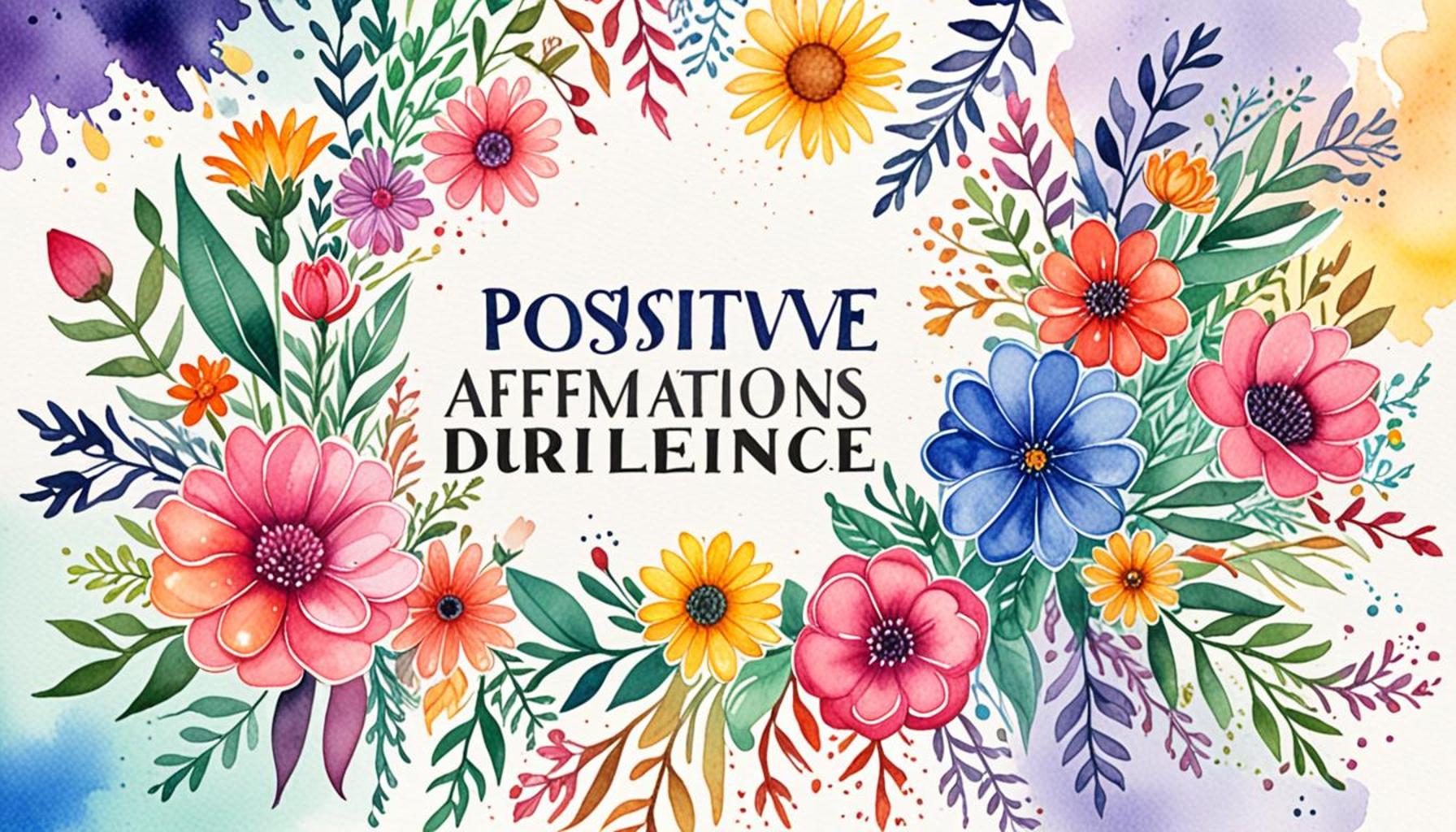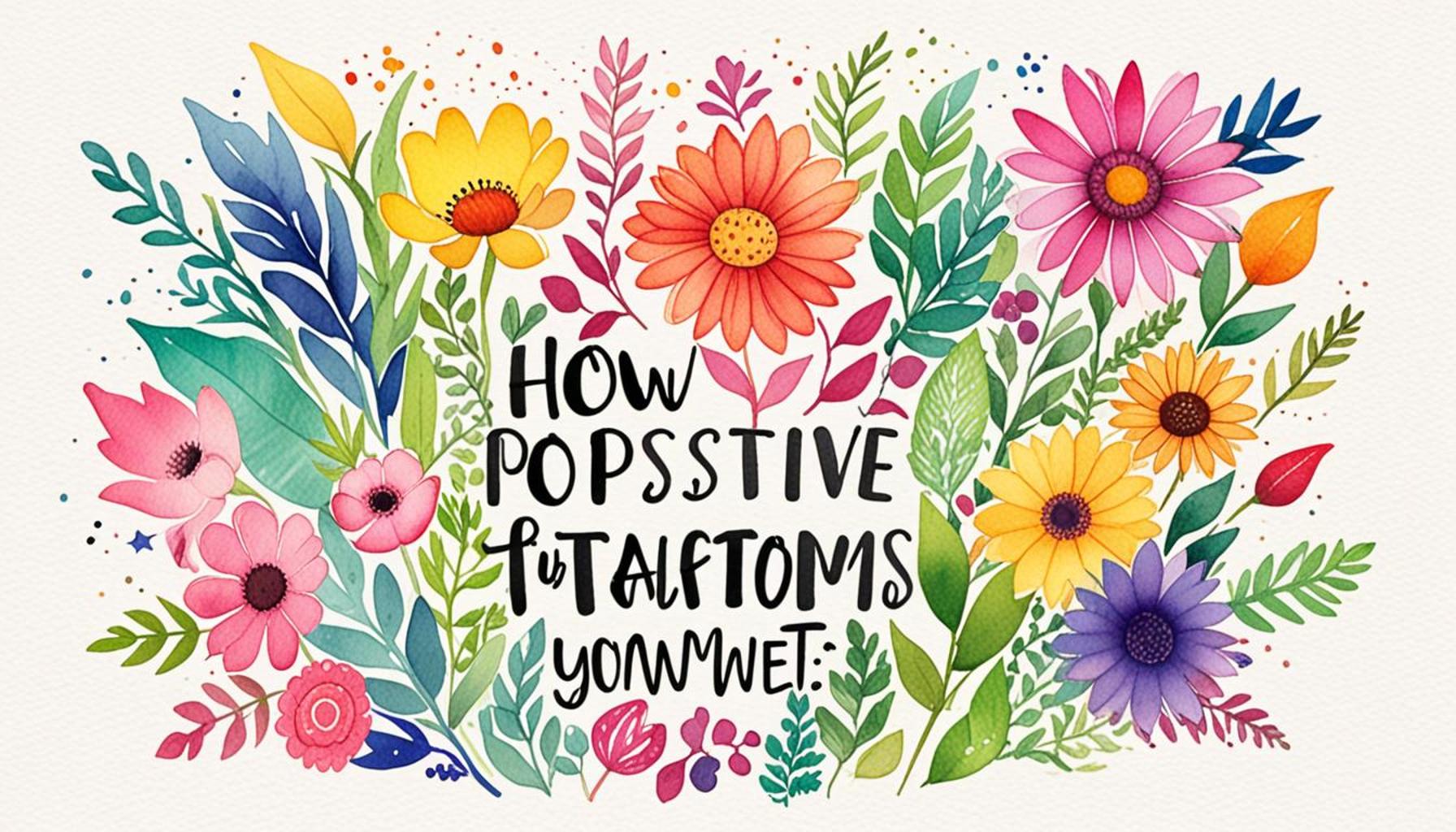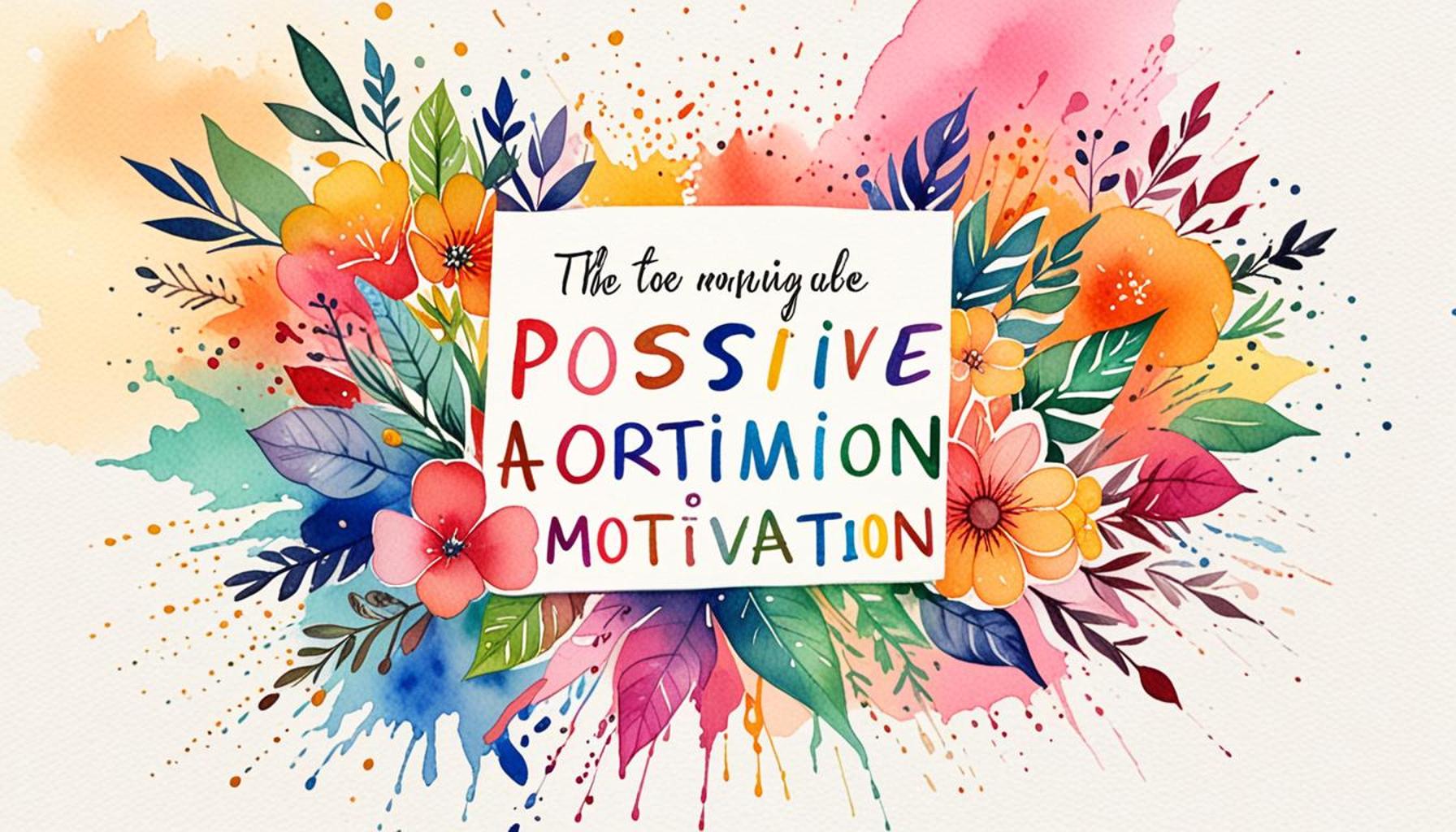Positive Affirmations to Strengthen Resilience in Times of Adversity

The Power of Positive Affirmations in Building Resilience
Adversity is an inevitable part of life, challenging our strength and emotional stability. In the face of difficulties, developing a resilient mindset becomes essential. One powerful tool for fostering resilience is the practice of positive affirmations.
Positive affirmations are simple yet profound statements that help reframe our thoughts, boost our self-esteem, and enhance our ability to cope with stress. Particularly in Nigeria, where challenges such as economic fluctuations, insecurity, and social pressures are common, these affirmations can offer a vital source of strength. Many Nigerians face daily uncertainties, yet, through the consistent use of affirmations, they can cultivate a mindset geared toward overcoming adversity.
Promote Self-Confidence
Repetition is key when it comes to affirmations. Phrases like “I am capable of overcoming obstacles” can nurture a strong belief in one’s abilities. For instance, a young entrepreneur in Lagos may face various hurdles when starting a business, from financial constraints to navigating local regulations. By affirming their capabilities daily, they can bolster their confidence and approach challenges with greater tenacity. This self-assurance can translate into practical steps towards achieving their goals, such as seeking mentorship or exploring innovative business solutions.
Foster a Positive Mindset
In an environment where pessimism and despair can often overshadow hope, words carry power. Affirmations like “I attract positivity and success” encourage a hopeful outlook amidst uncertainty. Consider the scenario of a student preparing for the Unified Tertiary Matriculation Examination (UTME) in a competitive academic environment. Instead of succumbing to pre-exam anxiety, embracing positive thoughts can help them focus and perform better. Studies suggest that a positive mindset not only improves mental health but also enhances overall performance in various aspects of life.
Encourage Emotional Healing
Life’s burdens can leave emotional scars, and it’s essential to process these feelings. Affirmations such as “It’s okay to feel, and I can heal” validate emotions and promote recovery from setbacks. In communities facing trauma, either from personal loss or societal issues, acknowledging these feelings is the first step toward healing. Utilizing these affirmations in communal gatherings or therapy sessions can provide a collective strength, facilitating discussions around mental health and resilience.

Research has shown that the consistent practice of positive affirmations can lead to significant improvements in mental health and overall resilience. As Nigerians navigate through life’s challenges, incorporating these affirmations into daily routines—perhaps during morning routines or family gatherings—can cultivate a profound sense of strength and purpose.
Discover how the simple act of speaking affirmatively can change not just how we view ourselves but also how we confront adversity. Embracing positive affirmations is not just a practice; it can be a lifestyle shift towards a more resilient future. It offers everyone, from students to workers, opportunities to redefine their narratives, making resilience not just a concept but a lived reality.
SEE ALSO: Click here to read another article
Harnessing the Strength of Words: Affirmations for Resilience
The ability to navigate life’s challenges with grace and determination often hinges on our mindset. In Nigeria, where many confront adversities ranging from societal issues to personal hardships, maintaining a resilient outlook is essential. This is where the power of positive affirmations comes into play. Far from simple motivational quotes, these affirmations serve as a crucial tool in transforming our internal dialogue, leading to stronger emotional fortitude.
Understand the Impact of Language
Words shape our reality. When individuals consistently express thoughts of empowerment, resilience, and capability, their subconscious begins to internalize these beliefs. For example, recurring phrases such as “I embrace challenges with strength” elevate one’s mindset, promoting a proactive approach toward adversity. Picture a farmer in the northern regions of Nigeria facing adverse weather conditions impacting crop yield. By affirming their ability to adapt and find alternative solutions, such as diversifying crops or exploring irrigation options, they can maintain a forward momentum and mitigate despair.
Developing Coping Strategies
In times of hardship, one of the most critical aspects of resilience is the ability to cope effectively. Positive affirmations can act as coping mechanisms during overwhelming situations. Phrases like “I handle difficulties with calm and clarity” encourage individuals to harness their emotional intelligence when faced with stressful circumstances. For instance, a student grappling with academic pressure may use affirmations to stay grounded and focused amidst demanding expectations. By learning to manage their stress through positive reinforcement, they can improve both their mental health and academic performance.
Affirmations for Community and Collective Resilience
Resilience is not only an individual endeavor; it thrives in community settings as well. In times of national distress—be it through communal clashes or economic downturns—coming together and uplifting one another through shared affirmations can forge stronger bonds. Organizing community gatherings to recite affirmations such as “Together, we rise stronger” can create an environment of support and empowerment. This collective practice not only reinforces individual resilience but also fosters a culture of unity and hope, reminding everyone that they are not alone in their struggles.
Practical Examples of Positive Affirmations
Incorporating positive affirmations into daily life can be simple yet transformative. Here are some practical affirmations that can be used:
- “I believe in my ability to create positive change.”
- “Every challenge I face is an opportunity for growth.”
- “I am resilient, strong, and capable of achieving my dreams.”
- “I choose to focus on solutions, not problems.”
The journey to resilience is ongoing and requires deliberate effort. By adopting and vocalizing these affirmations, individuals cultivate a mindset primed for overcoming obstacles. The repeated practice of positive affirmations paves the way for a brighter future, where resilience is not merely a response to adversity, but a way of life.
| Category | Benefits |
|---|---|
| Affirmative Mindset | Positive affirmations help cultivate an affirmative mindset, allowing individuals to shift focus from negativity to empowering thoughts. By regularly practicing these affirmations, one can reshape their inner dialogue. |
| Emotional Resilience | Using positive affirmations enhances emotional resilience. It equips individuals with the ability to bounce back from challenges. This mental fortitude fosters a greater tolerance for stress and anxiety, promoting overall well-being. |
The concepts of positive affirmations extend beyond mere encouragement; they lay a foundation for an empowered lifestyle. Individuals often overlook the profound impact of self-talk in shaping their mental health and resilience. Integrating a daily routine of affirmations not only uplifts spirits but also sets a proactive tone for facing adversities.Additionally, the science behind these affirmations shows that when individuals engage in this practice, they stimulate their brain to accept these positive assertions as truths. This process enables the reprogramming of negative narratives—transforming vulnerability into strength. It can inspire readers to explore effective affirmation techniques, potentially leading them to valuable resources and further information on enhancing resilience.
CHECK OUT: Click here to explore more
The Science Behind Affirmations: How They Foster Resilience
Understanding the psychological and neurological underpinnings of positive affirmations further illustrates their significant role in building resilience during challenging times. Numerous studies have shown that affirmations can activate the brain’s reward centers, leading to enhanced mood and increased motivation. In a region like Nigeria, where psychological stressors can be prevalent, embracing such techniques can result in profound changes in one’s outlook on life.
The Role of Neuroplasticity
Neuroplasticity—the brain’s ability to reorganize itself by forming new neural connections—is a crucial concept when discussing affirmations. Engaging in positive self-talk can reshape detrimental thought patterns that may have been fostered by past experiences. For instance, a young entrepreneur facing economic uncertainties may frequently tell themselves, “I am capable of overcoming any obstacle that comes my way.” This affirmation can help reshape their mindset and encourage adaptive responses, promoting resilience in the face of competition or economic challenges.
Integrating Affirmations into Daily Routines
Creating a consistent affirmation routine can significantly enhance its effectiveness. Practicing affirmations daily, such as in the morning or before sleep, can instill a sense of purpose and commitment. Utilizing visual reminders—like sticky notes on mirrors or phone wallpapers—can keep these positive messages at the forefront of the mind. For example, an employee in Lagos dealing with workplace stress may use the phrase, “I attract success and positivity into my life,” as a daily mantra to motivate and focus their energy on achieving their professional goals.
Affirmations and Cultural Significance
In a culturally rich and diverse nation like Nigeria, affirmations can also tap into traditional wisdom and communal values. Many cultures emphasize the power of spoken words, viewing them as a means of manifestation. By combining traditional proverbs with modern affirmations, individuals can create a localized approach to resilience. For instance, integrating a saying like “Unity is strength” into personal affirmations can resonate deeply and empower individuals, reminding them that resilience flourishes in community support.
Your Affirmation Toolbox
Building a toolbox of personalized affirmations can help individuals face various situations. Consider incorporating affirmations that reflect specific challenges faced by many Nigerians today, such as:
- “I have the power to create stability and progress in my life.”
- “I am surrounded by love and support, even in difficult times.”
- “My experiences shape me, but do not define me.”
- “I am capable of adapting to change and transforming challenges into opportunities.”
By tailoring affirmations to directly reflect personal or communal experiences, individuals can enhance their impact significantly. This customization makes affirmations not just words but a vivid declaration of intention and resilience in the face of adversity.
ADDITIONAL INSIGHTS: Expand your understanding here
Embracing Affirmations for a Resilient Future
In conclusion, the power of positive affirmations as a tool for strengthening resilience during challenging times cannot be understated. By understanding the science behind affirmations, particularly their influence on neuroplasticity and emotions, individuals can harness this knowledge to reshape their mental landscapes. Integrating affirmations into daily routines not only serves as a reminder of one’s capabilities but also fosters a sense of control over one’s life’s narrative. In a diverse and culturally rich setting like Nigeria, combining traditional wisdom with contemporary affirmations can resonate with many, allowing individuals to connect with their roots while addressing modern challenges.
Creating a personalized affirmation toolbox that reflects one’s experiences can empower Nigerians to navigate adversities — whether they stem from economic uncertainties or personal struggles. Phrases such as “I am capable of adapting to change and transforming challenges into opportunities” become more than mere words; they evolve into powerful declarations of intent that reinforce positive thinking and adaptive behaviors. As resilience becomes increasingly vital in navigating life’s unpredictability, embracing affirmations is a practical and transformative step towards emotional well-being.
As you embark on your journey of self-affirmation, consider not only the individual impact but also the communal strength derived from shared encouragement. By recognizing the synergy between personal resilience and community support, we can collectively foster a culture of positivity that empowers us all to overcome adversity and thrive.


